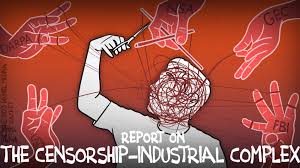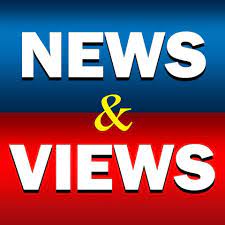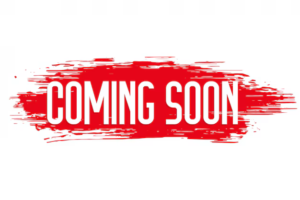
K and I were in the Big Apple this past week. And our time there was full of surprises.
The streets and avenues of midtown and downtown were relatively clean, and the sidewalks were crowded. The mood was vibrant, even upbeat. And the crazies – the drug-addled and lunatic homeless population – were more weirdly entertaining than scary.
The shops and restaurants were either full or half-full, and people were buying. Whether the dollars they were spending were the last they had of all the various government handouts or from wages or profits taken from stock accounts, I couldn’t tell. But the economic gestalt of at least those parts of the city felt remarkably healthy.
These are, of course, the parts of the city least likely to be suffering right now from our floundering (foundering?) economy, and the most likely to be feeling exuberant over the strength of the stock market. But still…
Worth Booking
K booked us into the recently opened Fifth Avenue Hotel. Our pied-à-terre for the week, a standard guest room (about 250 square feet) with a king-sized bed, cost a thousand a night with an American Express Black Card discount.
K likes trying out new hotels, and she had, as always, researched this one carefully. The reviews, she told me, from both critics and guests, were uniformly excellent. “They better have been,” I thought.
Located on Park Avenue and 28th Street, it is walking distance from Madison Square Park, a few steps from the High Line, and a short cab ride to the theater district.

The interior is spacious, elegant, and features an excellent restaurant and bar that require reservations, even for guests, because of their well-deserved reputations. The décor – in both the public areas and the guest rooms (we saw three) – is tasteful and luxurious.

Most impressive, however, is the service. Every employee with whom we interacted, from the receptionists to the concierges to the butlers to the servers and even the housekeepers, was efficient, capable, and responsive. And they always sported a cheerful and helpful demeanor. In New York City! One can expect excellent service in any first-class hotel in NYC… but genuine smiles?
We were in the city to see our NYC friends, to visit some of our favorite museums, to walk in our favorite parks, and to attend a performance at the Shubert Theatre of Water for Elephants, a musical that’s been selling out since day one.
That was a special treat because the leading lady, Isabelle McCalla, happens to be our niece, the daughter of my sister JF and her husband SM.
Worth Seeing
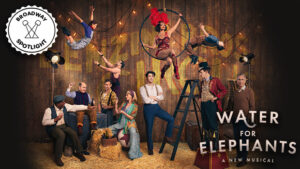
The show was very good. And Izzy was great – her third lead role in a Broadway show! I am so proud of her. During the intermission and afterwards at the stage door, I found myself initiating casual conversations with the ticket holders around me and mentioning, very humbly, that I was the leading lady’s uncle.
Although she didn’t do any dance solos in Water for Elephants, Izzy danced like the seasoned pro she is. As a child, she was privileged when it came to dancing. Her parents were for many years the lead dance couple for the American Ballroom Theater and taught ballroom dancing thereafter. Izzy began her training when she was in third grade.
Her acting was very good, too. Much better than it was the first time I saw her act when she was an undergrad at the U of Michigan drama school in 2015. Not surprising, because Izzy was always focused and determined to get better at anything she did.

What did surprise me about her performance in Water for Elephants was her singing.
I’ve seen her sing at least a half-dozen times since that first time nine years ago – and each time, I thought I could detect an improvement. I noticed an improvement when she sang as Jasmine in Aladdin, as Alyssa in The Prom, and a noticeable improvement when she played Maizy in Shucks.
In Water for Elephants, she brought her voice to an even higher level. She had, I think, three solos and two duets. In each, her singing ranged from excellent to mesmerizing.
Normally, at this point in an essay like this, I’d stop to provide a “takeaway” – some pragmatic observation or useful suggestion that the reader could benefit from. Well, there isn’t one. This is simply a bald-faced brag.
But in writing it, there was a takeaway for me…
It has always seemed obvious to me that while many skills can be greatly improved through practice – conscious practice – there are some for which achievement is limited by one’s DNA. You have it or you don’t. An aptitude for math, for example, is one of them. Singing is another. But Izzy’s progress made me realize that even a skill as “inborn” as the ability to sing well can be, with time and persistence, mastered.
I wish I knew that when I was younger.
Click here to watch Izzy and her costar, Grant Gustin, performing “Wild” from Water for Elephants.
Why I’m Moving to a Monthly Format
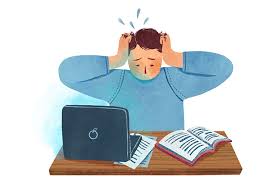
If you read the Aug. 28 issue, you know that this is the last of my weekly posts. Several readers wanted to know why I’m making the change.
Here’s one big reason…
Until COVID-19 hit, I didn’t write much about current events. I knew that the news media had biases. But I thought they were mostly about politics and that those biases were easy to spot and, therefore, largely inoffensive. And on subjects other than politics, I figured they were mostly trustworthy.
I felt the same way about the larger social media platforms. And I had equal or greater trust in the government agencies that were charged with researching and informing the public about public health issues (WHO, the NIH, and the CDC).
But in early 2000, I began to notice that the numbers I was hearing and reading about COVID in the news didn’t add up.
Literally.
You didn’t need to be a virologist to notice the discrepancies You needed only a grammar school education in arithmetic.
The early estimates of the lethality rate of the virus, for example, ranged from 12% to 15%. If true, and if the virus was also as contagious as the media were reporting, we were looking at perhaps the deadliest pandemic in history, with a death count not in the talked-about millions, but in the billions.
Two variables alone – the fact that the virus was killing mostly the older and the obese, and the fact that a significant percentage of people who had tested positive were either asymptomatic or had only minor symptoms – made it arithmetically impossible to believe the official numbers.
Yet everyone seemed to accept those numbers as scientific facts, and the media passed them along to the public uncritically.
I was flummoxed. Was I the only one that noticed?
I decided to write about it. And, thus, the purpose of my first essay on COVID was not to inform my readers that they were being fed false information, but to explain my thinking and show them my arithmetic. I did the same in conversations with friends and neighbors. I asked. And I kept asking. But I got only two responses: polite silence or laughter.
This prompted me to double down on my research. I began with how and where the infection started. China and the WHO had issued a report stating that the cause was zoonotic – i.e., passed to humans from an infected animal at an outdoor fish market on December 31, 2019 in Wuhan, China. This was accepted by the CDC and passed along to Americans by Dr. Fauci, as head of the CDC.
Soon thereafter, letters and articles were being published in health and science journals arguing that the DNA of the virus could not have been zoonotic and might have come from a leak at a US-funded laboratory in Wuhan.
I read both sides of the argument but decided that I didn’t have the knowledge to go with one or the other.
In the ensuing weeks, the WHO, Dr. Fauci, and some of his colleagues at the CDC (and I think at the NIH) launched a harsh attack on proponents of the “lab leak” theory, accusing them of being anti-science and engaging in dangerous “misinformation” and “conspiracy theories.”
“What difference does the origin of the virus make?” I wondered. “What matters is how to stop or control it.”
But the campaign continued and deepened. Before long, anything published in support of the lab leak theory was being cancelled. Then several of the scientists and doctors who argued in favor of it were publicly condemned, sanctioned by their medical associations, and in some cases had their licenses revoked.
Today, everyone accepts the lab leak theory as the one that is most likely to be true. Even the CDC. And yet, I’ll bet if I asked 10 people that get their information from CNN and the NYT, at least six of them would still call it a “conspiracy.”
At the same time as I was researching the origins of the virus, I continued to study and write about the fatality rate. And over the years that have passed since I first put forward my guesses, the official lethality count was gradually lowered. But it took nearly four years for the WHO, the CDC, and the NIH to get honest with the public and begin publishing the real numbers.
I had the same experience with questions about the utility of social distancing and masks and the government shutdown of the economy. In every instance, the “findings” coming from government health agencies and the narratives promoted by mainstream media seemed, according to the facts I was discovering, less and less probable.
Eventually, I became a full-fledged disbeliever in anything the “official” sources had to say about COVID. And that led me to mistrust what my government was telling me about all the controversies during that time – from the earlier reports that Russia had interfered with the 2016 presidential election, to the accusation that Trump was “colluding” with Russia during his term of office, to the “facts” publicized following the BLM protests and riots, to the more recent controversies about the Russia/Ukraine and Israel/Hamas wars.
In almost every case, I found numbers that didn’t add up, or logic that was fallacious, or stories that had been fabricated, or facts that were not facts, and very little common sense applied.
I was drawn into these controversies. And when my essays on them were criticized, I was drawn in even deeper to prove my arguments.
It was intense. And intellectually and emotionally exhausting. Moreover, the research was taking up an increasingly bigger proportion of my working day. And so, about a month ago, when I woke up one morning still tired from working till the wee hours to finish another one of those essays, I decided enough was enough. There were plenty of other writers producing arguments on my side of the stories.
I realized that if I could free myself of what had turned into an obsession – if I could step away from researching and writing about current events and political issues – I would be able to free up at least 20 hours a week that I could devote to finishing some of my 18 half-written books.
I didn’t want to stop writing my blog altogether – but I didn’t have to post an issue twice a week. I could do a longer issue once a month. And I would still have time to fulfill my obligation to write several syndicated essays each month for large-circulation e-zines.
So, that is the thinking behind my decision to make this my last weekly issue. When you get to the Postscript at the end, you’ll see what I’m planning for the new monthly issue.

